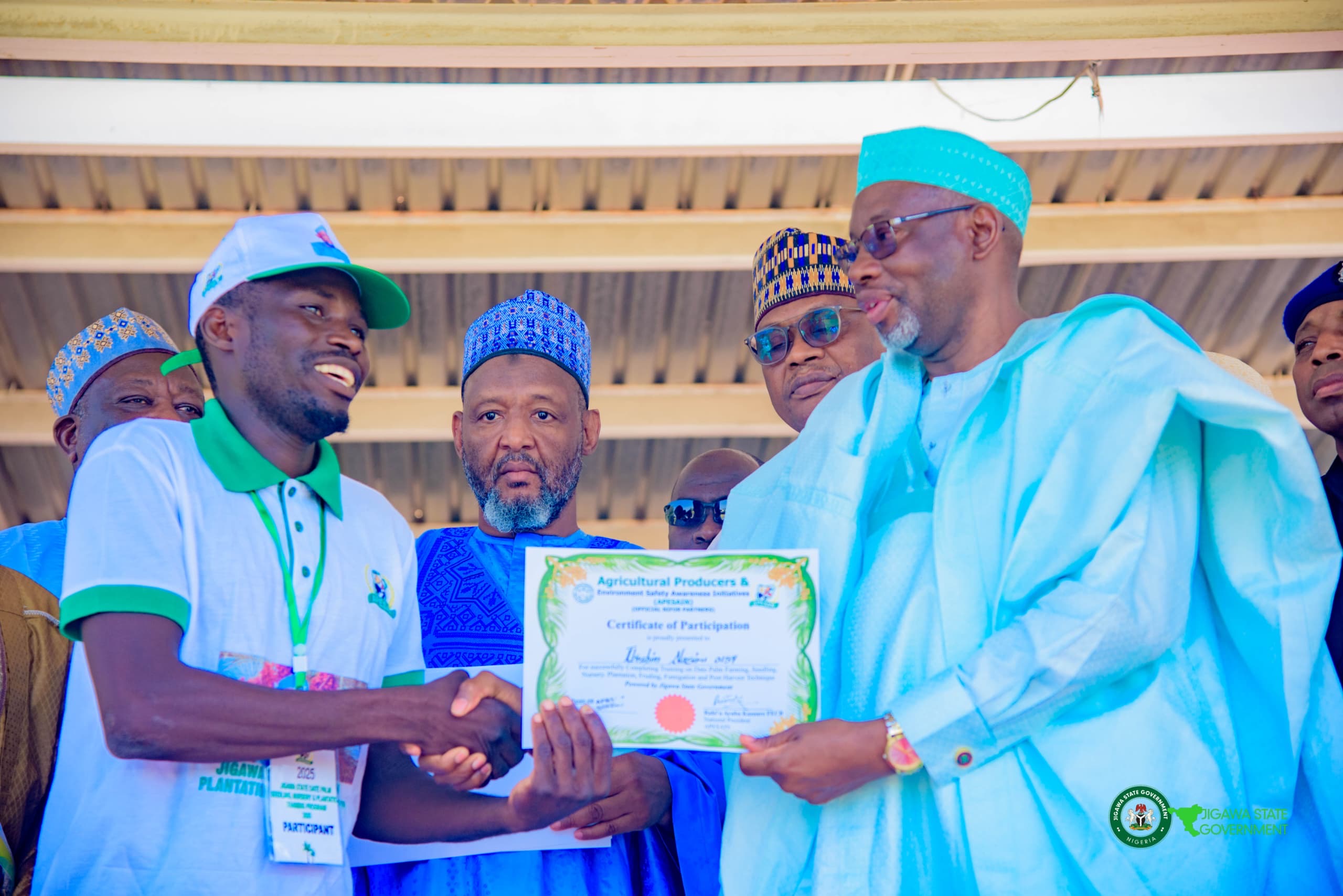Governor Malam Umar Namadi has launched the Jigawa State Date Palm Development Programme, a landmark project aimed at boosting agriculture, restoring the environment, and creating opportunities for thousands of young people across the state.
Hamisu Mohammed Gumel, Chief Press Secretary to the Governor of Jigawa State disclosed this in a statement issued to newsmen on Monday.
Speaking at the official launch today at the Fanisau NYSC Orientation Camp in Dutse, Governor Namadi expressed gratitude to Almighty Allah for making the day possible, describing the programme as a long-term investment that will bring long-term benefits to Jigawa families and communities.
“With deep gratitude to Allah, the Supreme and Owner of all Sovereignty, I am highly delighted as we are gathered here today to witness the launch of yet another remarkable milestone in pursuit of several initiatives aimed at bringing prosperity to the people of Jigawa State. The program we are launching today is unique—being a multi-pronged initiative with multiple outcomes across several sectors of the State’s economy with a long-lasting impact on the socioeconomic wellbeing of our people and prosperity of our State,” he said.
The programme will see the planting of over 200,000 date palm seedlings across 1,042 hectares of land in selected Local Government Areas, while more than 2,000 youths will be directly engaged as custodians of the plantations.
“As conceived, the Date Palm Development Programme will involve the propagation and planting of over two hundred thousand date palm tree seedlings across two thousand and eighty-four date palm clusters covering one thousand and forty-two (1,042) hectares in some selected Local Government Areas across the State.”
At the launch, the governor also presided over the graduation of 400 young men and women from Birniwa, Babura, Sule-Tankarkar, and Yankwashi Local Government Areas, who successfully completed intensive training in plantation establishment, cultivation, management, and value addition.
“Each of the four hundred trained youths will be entrusted with half a hectare for proper management. Already, all the sites were equipped with 5 industrial boreholes for watering and irrigation purposes and will also be fenced to prevent encroachment and safeguard the survival of the seedlings. Each of the 400 youth will be entitled to a monthly allowance to manage the sites for an initial two years under expert supervision.”
Governor Namadi commended the committee that worked tirelessly to design and implement the programme and urged them to sustain the momentum, announcing that the second phase will be rolled out by June 2026.
He further expressed optimism that the initiative will complement the Federal Government’s Great Green Wall Project, thereby strengthening environmental resilience and contributing to food security and economic growth in Jigawa and Nigeria as a whole.
Other experts who spoke at the event stressed the enormous economic and health potential of the initiative.
Dr. Abdulhamid Hamza Muhammad, Head of the Nigerian Institute of Oil Palm Research (NIFOR) substation in Dutse, explained that dates are rich in nutrients, support brain health, and help prevent diseases, saying that a single date palm tree can yield between 60 and 70 kilograms of dates annually, adding that a youth managing one hectare of land could earn over ₦7 million per year from date palm farming.
Malam Rabi’u Ayuba Kazaure, a consultant with APESAN, projected that the initiative could fetch the state billions of naira in date palm sales annually.
“Out of the 1,042 hectares allocated in Jigawa State, we took the minimum estimate and said at least 5 kilograms per tree base, since it produces twice a year. That makes it 30 kilograms each time—70 kilograms annually per tree. With 150 trees, when you multiply by this number, it gives ₦47 billion worth of dates every year. This is the minimum that can be achieved from these 400 trees on the 1,042 hectares.”


